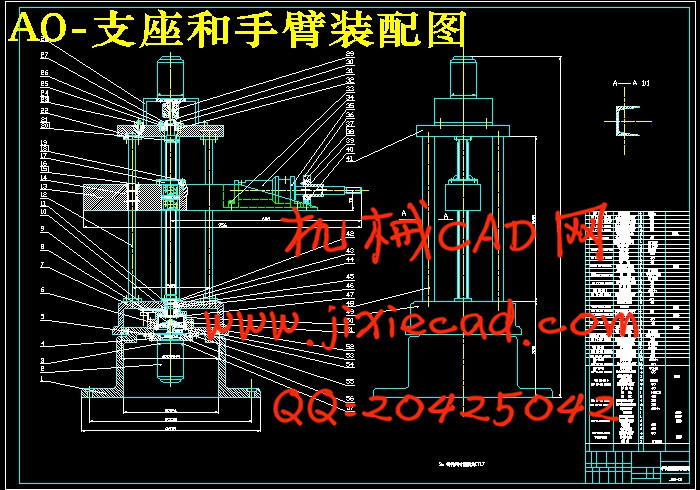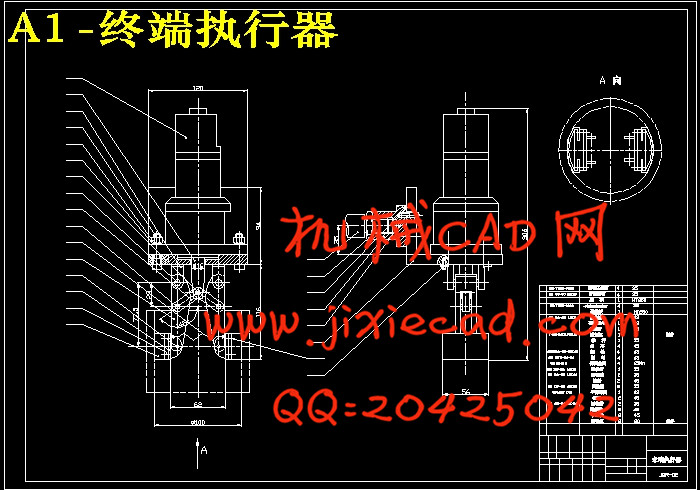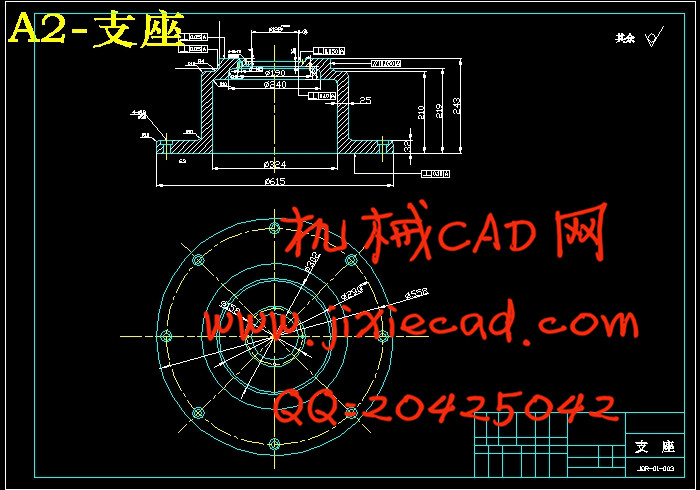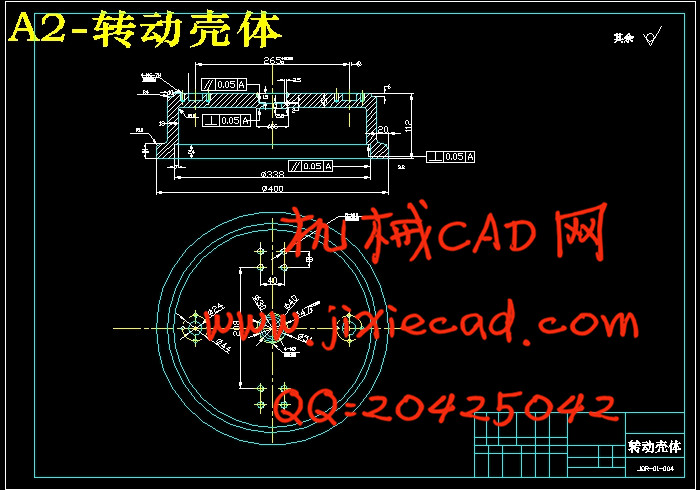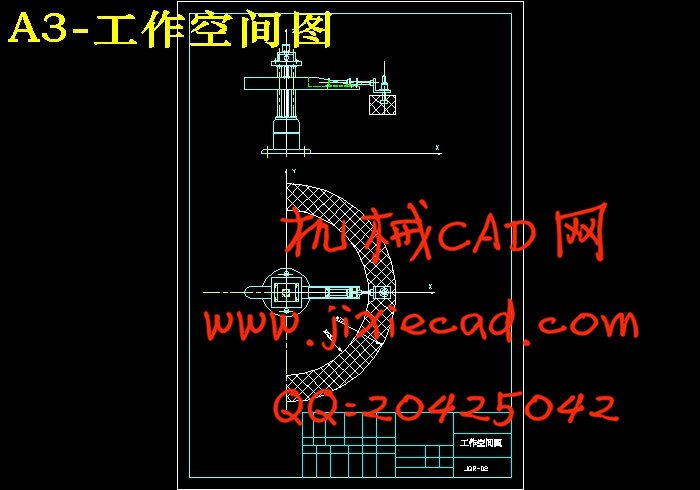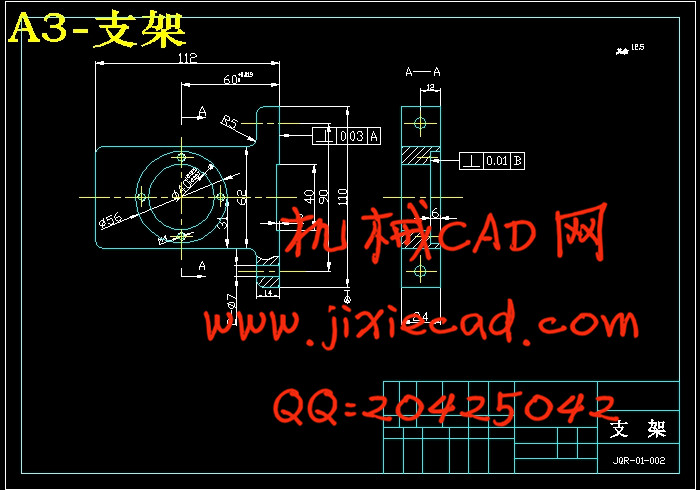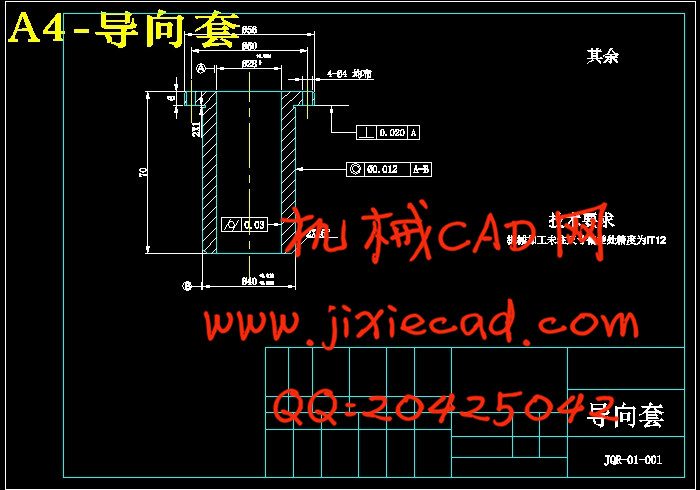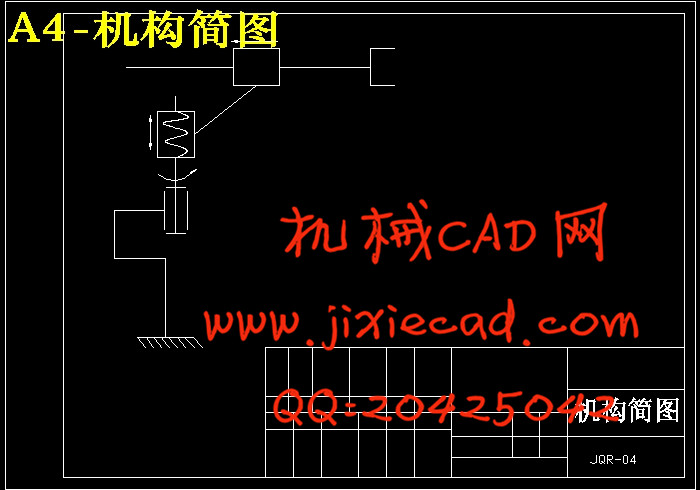设计简介
中文摘要
在工业上,自动控制系统有着广泛的应用,如工业自动化机床控制,计算机系统,机器人等。而工业机器人是相对较新的电子设备,它正开始改变现代化工业面貌。本设计为三自由度圆柱坐标型工业机器人,其工作方向为两个直线方向和一个旋转方向。在控制器的作用下,它执行将工件从一条流水线拿到另一条流水线这一简单的动作,本文是对整个设计工作较全面的介绍和总结。关键词:三自由度,圆柱坐标,工业机器人
Abstract
Industrially, automatic control systems are found in numerous applications, such as automation machine tool control, computer systems and robotics. Industrial robots are relatively new electromechanical devices that are beginning to change the appearance of modern industry. This scheme introduced a cylindrical robot for three degree of freedom. It is composed of two linear axes and one rotary axis current control only allows these devices move from one assembly line to other assembly line in space, perform relatively simple taskes. This paper is more comprehensive introduction and summing-up for the for the whole design work.
Key words :three degrees of freedom, cylindrical, Industrial robot
目 录
目录 …………………………………………………………………………………………… 1中文摘要 ……………………………………………………………………………………… 2
Abstract ……………………………………………………………………………………… 2
第1章 绪论 ……‥………………………………………………………………………… 3
第2章 工业机器人的总体设计 …………………………………………………………… 3
2.1 工业机器人的组成及各部分关系概述 …………………………………………… 3
2.2 工业机器人的设计分析 ……………………………………………………………… 4
2.2.1 设计要求 ………………………………………………………………………… 5
2.2.2 总体方案拟定 …………………………………………………………………… 5
2.2.3 工业机器人的主要技术参数 ………………………………………………… 5
第3章 工业机器人的机械系统设计 ……………………………………………………… 6
3.1 工业机器人的运动系统分析 ……………………………………………………… 6
3.1.1 机器人的运动概述 ……………………………………………………………… 6
3.1.2 机器人的运动过程分析 ……………………………………………………… 7
3.2 工业机器人的执行机构设计 ……………………………………………………… 8
3.2.1 末端执行机构设计 ……………………………………………………………… 8
3.2.2 手臂机构设计 ………………………………………………………………… 11
3.2.3 腰部和基座设计 ………………………………………………………………… 12
3.3 工业机器人的机械传动装置设计 ‥……………………………………………… 18
3.3.1 滚珠丝杠的选择 ………………………………………………………………… 18
3.3.2 谐波齿轮的选择 ………………………………………………………………… 19
3.3.3 联轴器的选择 ………………………………………………………………… 20
第4章 工业机器人的计算机控制系统概述 ……………………………………………… 20
4.1 工业机器人控制系统的特点及对控制功能的基本要求 ‥……………………… 21
4.2 计算机控制系统的设计方案 ……………………………………………………… 22
4.3 硬件电路的组成 ………………………………………………………………… 22
第5章 工业机器人运行时应采取的安全措施 …………………………………………… 22
5.1 安全要求 ………………………………………………………………………… 22
5.2 实施方法 …………………………………………………………………………… 23
鸣谢 ……………………………………………………………………………………… 23
参考文献 ………………………………………………………………………………… 24


